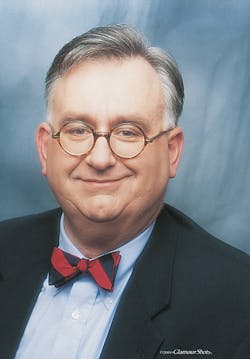Command Post: Riding the Right-Front Seat: Some Basic Leadership Skills
I recently came across research on the basics of leading people in a volunteer environment that applies to every type of fire department.
In an article titled “Thoughts on Leadership “ (Professional Safety, September 2003), James Kendrick suggests there are basic skills an effective leader must develop and use:
- Define the current reality
- Have a vision
- Explain where you are going and why
- Develop a plan for getting there
- Assure the group you can lead them there
- Choose and develop other leaders
- Be willing to take the first step
- Be ready to slay the wolves and dragons
You may think these skills and abilities are strictly for those in the upper level of your organization, but this is a common misconception. How can you become a good upper-level leader if you have not learned and practiced good leadership skills on your climb up the ranks? Do you expect to bumble along for years and then experience a sudden burst of brilliance? That’s not how it works.
You must start with a minimalist approach to leading people and then add layers of assistance and guidance as situations dictate. Some people work well with minimal supervision; others must be held by the hand. You must be able to work with both types, as well as those who operate somewhere between these two extremes.
Nobody’s perfect
You will never become perfect at leading others –each of us is a work in progress. As long as we live, there will always be one more change to make. Your vision of where your team should be heading is critical to the team’s success. Focus your vision on your unit’s role within the department’s overall operations, then empower your people to achieve success.
Next, sell your vision to the troops. It will be easier if you had the help of your troops in developing the guts of the plan to reach your vision. Perhaps you can build a vision around becoming the best engine, truck or rescue company in your battalion, district or city. To reach this goal, you must develop a plan for achieving the objectives you select for your team. Ask your people for their suggestions on what must be done to create the plan to reach this goal.
Once that task has been accomplished, you then have to sell yourself as the person most appropriate to make the team’s journey toward this vision and the approach goals a reality. The only way to build up loyalty is to show respect and reliability to your team members. Be there for them and support them at all times and in all places. Show up every day, listen to their needs and comments and take care of them to the greatest extent possible.
One of your critical roles is to develop others who are capable of taking your place when you move up. Think of this as training your replacement. Help the people who make you look good as a leader. Uncover their dreams, goals and aspirations, then help them reach their dreams. People never forget a leader who helped them succeed.
You will probably have enemies in your organization. The same will hold true for the members of your team. The more you succeed in becoming an effective leader, the greater will be the number of the people who are your adversaries. Jealousy is a terrible thing to encounter. People will attack you and your team. They will work in a sneaky, underhanded fashion. That’s just the way it is. Suck it up and move forward.
There is no “one best way” to become a better leader. Help your team members solve their problems and support them as they seek to become the best firefighters possible. Drill with them and give them wise counsel as you handle the whole range of emergency operations to which your people and you are called. After these calls, lead your people in a solid critique of your efforts. Ask them how they feel about what was done and how things could be better, then be incorporate their suggestions into your unit’s training:
- Train
- Do
- Review
Do not just blindly keep doing things the same old way. Work to be a real leader. You are the only one who can make this happen. If you wait for a miracle, you will be disappointed – and you will be deemed a failure by your people and your bosses.
HARRY R. CARTER, Ph.D., a Firehouse® contributing editor, is a fire protection consultant based in Adelphia, NJ. He is chairman of the Board of Commissioners in Howell Township Fire District 2 and retired from the Newark Fire Department as a battalion commander. Dr. Carter has been a member of the Adelphia Fire Company since 1971, serving as chief in 1991. He is a life member and past president of the International Society of Fire Service Instructors and life member of the National Fire Protection Association. He is vice president of the Institution of Fire Engineers-USAmerica. Dr. Carter holds a Ph.D. in organization and management from Capella University in Minneapolis, MN.

Dr. Harry Carter
HARRY R. CARTER, Ph.D., who is a Firehouse contributing editor, is a fire protection consultant based in Adelphia, NJ. He is chairman of the Board of Commissioners in Howell Township Fire District 2 and retired from the Newark, NJ, Fire Department as a battalion commander. Carter has been a member of the Adelphia Fire Company since 1971, serving as chief in 1991. He is a life member and past president of the International Society of Fire Service Instructors and life member of the NFPA. He is the immediate past president of the U.S. branch of the Institution of Fire Engineers (IFE) of Great Britain. Carter holds a Ph.D. in organization and management from Capella University in Minneapolis, MN.
Connect with Harry:
Email: [email protected]






